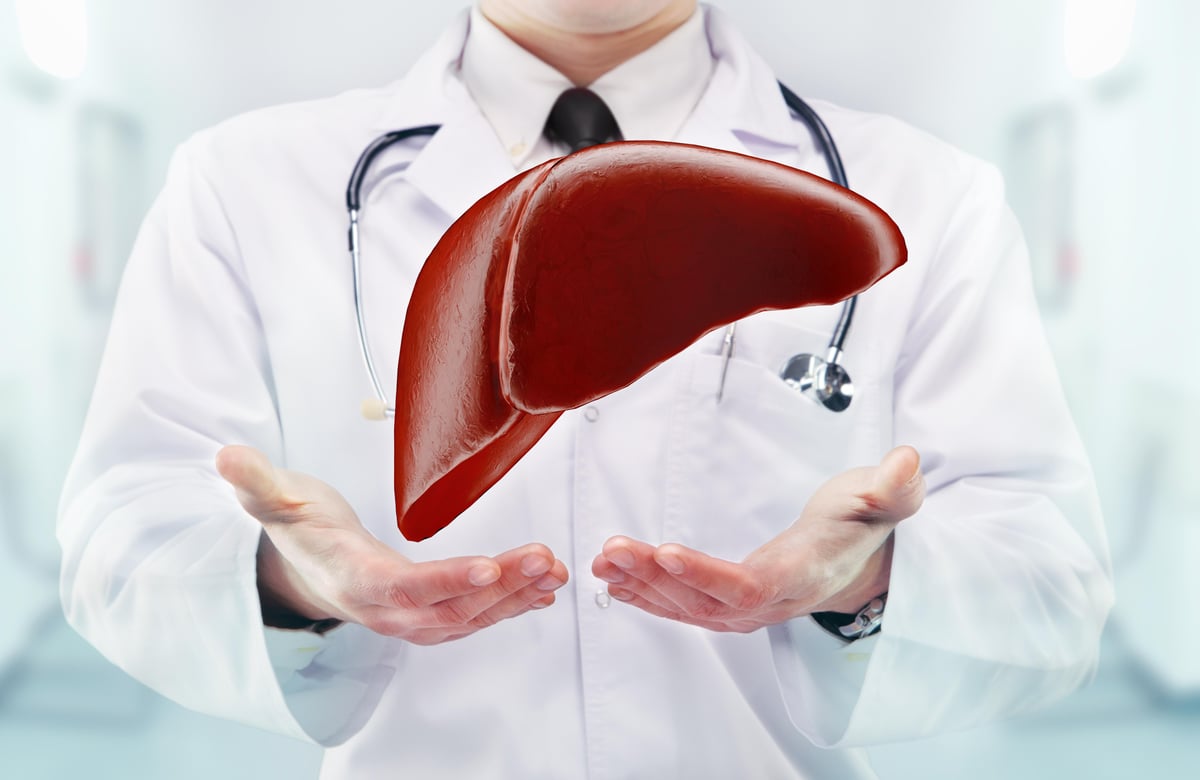COVID-19 Tied to Progression of Chronic Liver Disease

TUESDAY, June 21, 2022 (HealthDay News) -- About one in five patients with chronic liver disease (CLD) develop progressive cholestasis after severe COVID-19, according to a study published online May 21 in Hepatology.
Lukas Hartl, M.D., from University of Vienna, and colleagues examined the incidence of hepatic complications following severe COVID-19. The analysis included 496 hospitalized patients with COVID-19 (65 with preexisting liver disease).
The researchers found that COVID-19-related liver injury was more common among patients with CLD (24.6 versus 10.6 percent). Following severe COVID-19, CLD patients showed progressive cholestasis with persistently increasing levels of alkaline phosphatase and gamma-glutamyl transferase. Nearly one-fourth of patients with CLD (23.1 percent) developed cholestatic liver failure (cholestasis plus bilirubin ≥6 mg/dL) during COVID-19, and 15.4 percent of patients with CLD developed secondary sclerosing cholangitis (SSC), which was significantly more frequent with CLD and COVID-19 versus CLD patients with non-COVID-19 pneumonia. Nonalcoholic fatty liver disease/nonalcoholic steatohepatitis patients with metabolic risk factors accounted for most COVID-19-associated SSC. More than one-fourth of advanced CLD patients (26.3 percent) experienced hepatic decompensation following COVID-19.
"It is useful, in any case, to closely monitor liver function values in intensive care unit patients during or following COVID-19," a coauthor said in a statement.
Several authors disclosed financial ties to the pharmaceutical industry.
Related Posts
Race, Income Can Determine Blood Cancer Outcomes, Studies Show
MONDAY, Dec. 12, 2022 (HealthDay News) -- If someone is stricken with a blood...
More U.S. Kids Are Heading to ERs After Drinking Cough Suppressant
TUESDAY, Nov. 15, 2022 (HealthDay News) -- Increasing numbers of young children...
Physician’s Briefing Weekly Coronavirus Roundup
Here is what the editors at Physician's Briefing chose as the most important...
Reduced eGFR Linked to Increased Mortality in A-Fib
THURSDAY, Dec. 22, 2022 (HealthDay News) -- Moderately-to-severely reduced...
